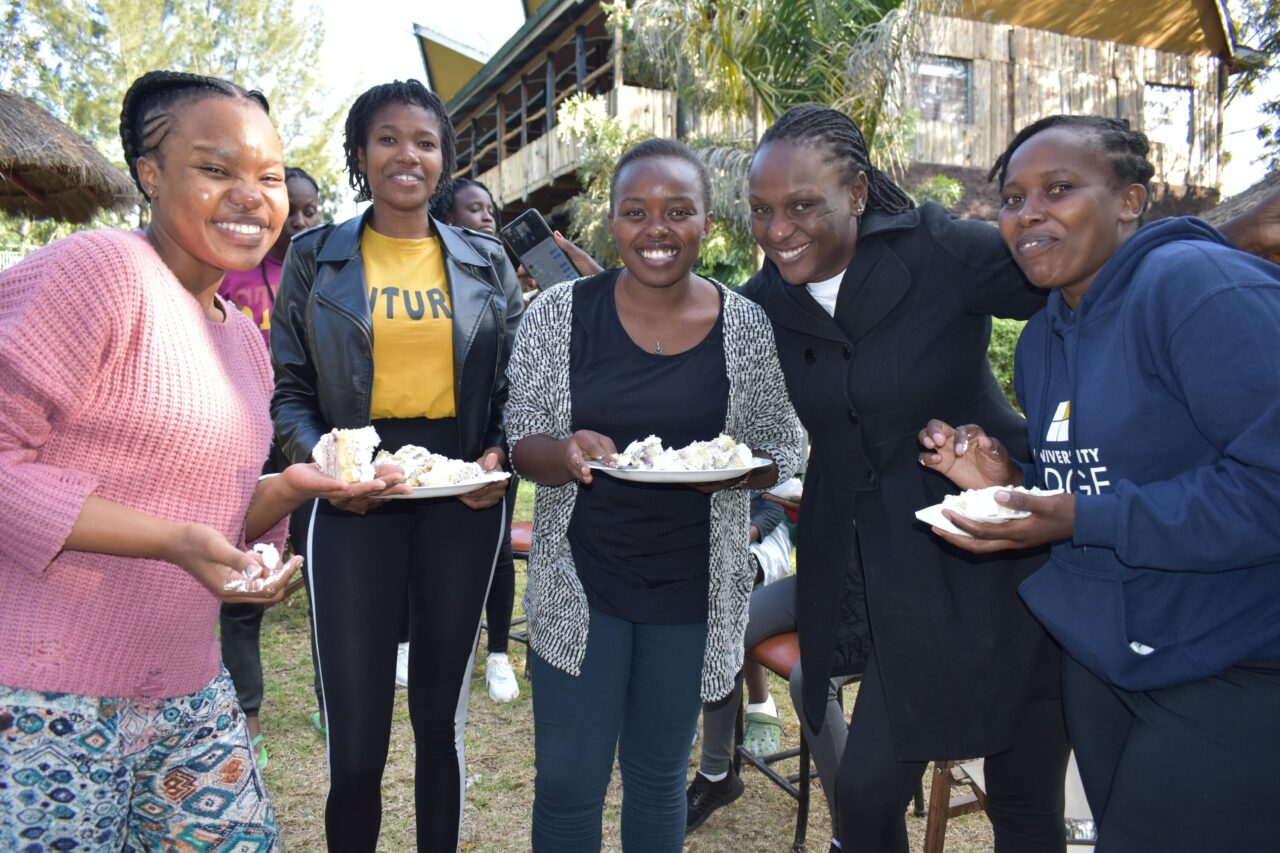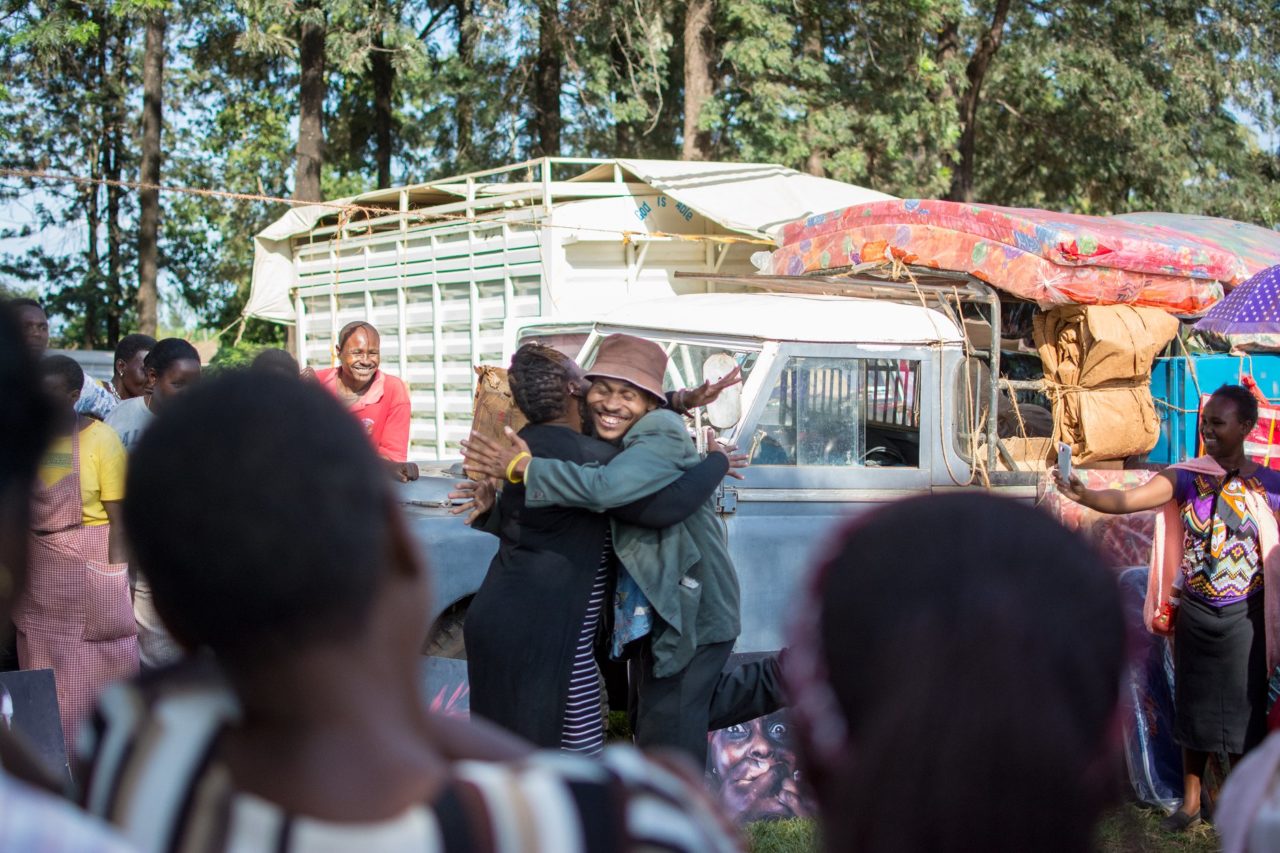“ I feel elated, I a more knowledgeable and I have obviously grown in my profession as a lawyer”
These are the words of a delighted Berlyn Moraa, one of the 15 Linda Haki mentees, who have been working alongside CREAW’s legal officers, to offer pro-bono services to women and girls who seek help.
The Kenyatta University law student, was more than excited to be shortlisted for the mentorship program. Little did she know that her passion for advocating for the rights of children, would put her at the forefront in advancing their voices at CREAW.
“My highlights have been seeing women come into the office heartbroken and confused but leave being hopeful and optimistic. Some will even text you later just to thank you,” Narrates Berlyn.
For Hezron Chege, the 11 months experience has been a mixture of emotions, learning and unlearning as well as getting the job done. As a student who had been a volunteer during legal clinics in campus, at Jomo Kenyatta University of Agriculture and Technology (JKUAT), Chege was familiar with dealing with a myriad of cases. However, none of the cases he handled in school were related to Gender Based Violence (GBV)
“ I was ignorant about GBV. I did not understand why a woman would stay in an abusive relationship when they can walk away. Right now am knowledgeable and can guide a client through GBV referral pathways” Admits Hezron.
The emotional aspect of supporting survivors through their journey of seeking justice has not been easy on the young lawyers. Michael Kinyua Njoki admits seeking counselling frequently to help him serve clients better.
“ When you come to CREAW, the clients look at you as a legal officer and not a student, so much is expected from your end as a professional. There is no room for second guessing,” Affirms Njoki.
According to Naomi Kilima, CREAW’s project lawyer who also doubles up as the mentees supervisor, the 11 months journey has seen the students develop their skills immeasurably.

“They are all able to perfectly draft pleadings. I always get excited when I get a good report from the courts regarding their works and they have been able to build on each other’s strengths. You can see the teamwork they exhibit,” Says Naomi
Poverty has been cited as one of the key contributing factors for lack of access to justice for women and marginalized populations living below the poverty line. It is against this backdrop that CREAW in partnership with the United Nations Development Program (UNDP) are implementing the Linda Haki project in Nairobi’s informal settlements, specifically Kibra, Eastleigh and Makadara in Nairobi County.
“From my interactions with women and children who have gone through different forms of violence, I would like to specialize in Human Rights Law at a later stage in my career. I got the right opportunity to witness the injustices women and girls go through and I feel I can do more,” Says Edith Nyanchama, who is currently at the Kenya School of Law.
“My experience at CREAW has been phenomenal. For the next Cohort, I would encourage them to be open minded, be willing to learn. Theory is easy to grasp but practical is the order of the day. Kwa ground Vitu ni different,” Assures Jackline Tumo, who is pursuing Law at Kenyatta University as her second degree.
Having paralegals who offer pro-bono services to clients who visit CREAW offices for legal aid, has increasingly helped offer more support to bigger number of clients compared to depending on CREAW’s lean team of legal officers.
The Linda Haki project objectives are mainly to improve access to quality and timely legal aid services and legal information for women in Nairobi County, as well as enhance implementation of legal aid framework including the National Action Plan for Legal Aid 2017-2022 and the Legal Aid Act 2016 to ensure sustainable and quality legal aid and services in Nairobi County.







